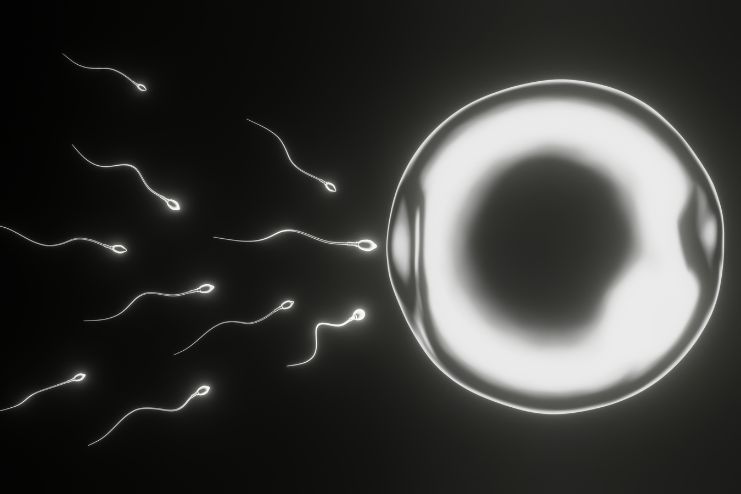Imagine wanting to start a family, only to find out that your sperm health is not what it used to be—or, even worse, that it has been gradually declining over the years. You are not alone in this concern. Research conducted over the past few decades has indicated a significant decline in sperm count and quality worldwide, raising serious questions about male fertility. Sperm counts have decreased by over 50% over the past 40 years. But what is causing this decline? More importantly, what can men do to protect their fertility?
Sperm health is declining, but it’s preventable. Lifestyle, environment, and diet are crucial for reproductive health. This article discusses alarming statistics, causes of low sperm count, preventative measures, and steps men can take to protect their fertility.
Read More: Diet And Sperm Quality Are Related, New Study Suggests.
The Alarming Decline in Semen Quality

Semen quality is a crucial indicator of male fertility, and its decline has become a global concern. Research shows sperm count, motility, and morphology have worsened over the past four decades. This has impacted male reproductive health and increased the demand for fertility treatments. Let’s understand how sharp this decline is and recent research about the reduced numbers.
Key Research Findings:
A 2022 follow-up study indicated that sperm concentration is still decreasing at an increasing rate worldwide, with the most significant declines occurring in recent years.
A 2022 study showed that sperm counts fell on average by 1.2% per year between 1973 and 2018, from 104 to 49 million/m.
A 2017 meta-analysis in Human Reproduction Update concluded that sperm counts decreased by 52.4% between 1973 and 2011 in North America, Europe, Australia, and New Zealand.
Sperm morphology (shape) and motility (movement) have also decreased, further contributing to decreased male fertility. This worldwide trend has affected men in various regions and backgrounds, indicating a mass public health issue.
Read More: Important Ways To Keep Your Sperm Healthy.
Potential Consequences of Low Sperm Count:
As sperm quality worsens, the effects are not limited to personal fertility issues. The effects spread to relationships, public health, and even the next generation. If nothing is done, the declining pattern of male fertility will redefine social dynamics, and conception will be more difficult, while medical treatments will be the norm.
- Rising male infertility rates make natural conception more difficult, delaying family planning for many couples.
- Increased reliance on IVF and other assisted reproductive technologies (ART) can be financially and emotionally draining.
- Higher risk of genetic and epigenetic complications in offspring due to poor sperm quality.
- Potential long-term impact on population growth, leading to demographic and economic shifts in the future.
- Psychological and emotional stress on men experiencing fertility issues affects self-esteem, relationships, and mental health.
Causes of Declining Semen Quality
The decline in semen quality is a complex issue caused by various factors. These can range from environmental toxins to age to lifestyle choices. Understanding these causes is important to maintaining men’s sperm count and preserving their fertility.
1. Environmental Toxins & Pollution:

Every day, we expose ourselves to harmful chemicals and toxins. These toxins impact hormone levels and sperm production.
- Endocrine-disrupting Chemicals (EDCs): EDCs are generally found in plastics, pesticides, and personal care products. These chemicals are not safe and significantly impact sperm production.
- Air Pollution and Heavy Metals: Air pollution has a significant role in male fertility. Exposure to pollutants like lead, mercury, and cadmium can harm sperm quality.
2. Poor Diet & Nutritional Deficiencies:

Proper nutrition is essential for maintaining overall health and reproductive health. Proper nutrient intake plays a crucial role in testosterone levels and sperm health.
- Processed foods, sugars, and trans fats lower testosterone and sperm count. Consuming starchy food regularly has a direct impact on sperm production.
- Improper nutrition, especially low levels of zinc, vitamin D, and omega-3 fatty acids, is linked to poor sperm health.
3. Sedentary Lifestyle & Lack of Exercise:

Lack of physical activity and high body fat negatively impact reproductive hormones and sperm count in men.
- Obesity and excess body fat increase estrogen levels and decrease testosterone, affecting sperm production.
- Prolonged sitting(e.g., desk jobs, driving) raises the scrotal temperature, which harms sperm production.
Read More: What Happens To The Body When You Live A Sedentary Lifestyle? 13 Possible Complications!
4. Chronic Stress & Sleep Deprivation:

If you are under constant stress or are sleep deprived, there are high chances of a low sperm count. Long-term stress and sleep issues disrupt hormone balance and lower fertility.
- Elevated cortisol levels from chronic stress can disrupt testosterone production.
- Poor sleep quality and disorders like sleep apnea negatively affect hormone regulation.
5. Exposure to Heat & Radiation

Overheating and exposure to radiation can damage sperm motility and quantity.
- Regular hot baths, saunas, and warm car seats can decrease sperm count.
- Electronic device radiation (e.g., laptops, cell phones) near the groin may affect sperm motility.
6. Smoking, Alcohol, and Drug Use:

Harmful substances can badly impair sperm health and fertility.
- Nicotine and heavy alcohol intake reduce sperm quality.
- Drugs such as marijuana and anabolic steroids can impair sperm production.
How Men Can Protect & Improve Their Fertility
If you’re a man and the quality of sperm count worries you, read further. Here are a few effective tips to protect and improve your sperm quality and overall fertility:
1. Adopt a Fertility-Friendly Diet:
Consuming the proper nutrients promotes hormone balance and sperm health.
- Boost zinc, selenium, vitamin D, folate, and omega-3 fatty acids.
- Consume more antioxidant foods (berries, leafy greens, nuts, seeds, fish, and eggs).
- Cut back on processed foods, sugar, trans fats, and too much caffeine.

2. Maintain a Healthy Weight & Exercise Regularly:
Being active helps control hormones and enhances sperm quality.
- Do moderate exercise (strength training + cardio).
- Don’t do too much endurance training (e.g., marathon running), which can reduce testosterone.
- Be active, but don’t overheat the testicles (e.g., excessive cycling).
3. Reduce Toxin Exposure:
- Avoiding harmful chemicals helps with reproductive health.
- Use BPA-free products and refuse plastic-packaged foods.
- Eat organic food to reduce exposure to pesticides.
Use natural body care products (paraben- and phthalate-free).
4. Optimize Sleep & Manage Stress:
Improved sleep and stress management enhance hormonal balance.
- Strive for 7-9 hours of quality sleep nightly.
- Utilize stress management practices (meditation, deep breathing, yoga).
- Reduce screen time before sleep to enhance melatonin production.
5. Avoid Heat & Radiation Exposure:
- Maintaining testicles cool and avoiding radiation exposure safeguards sperm.
- Wear loose-fitting underwear (boxers instead of briefs) to keep testes cool.
- Avoid hot tubs, saunas, and warm car seats.
- Avoid laptops and cell phones in the groin area.

6. Quit Smoking, Limit Alcohol, and Avoid Drugs
Eliminating harmful substances can significantly boost fertility.
- Smoking reduces sperm count and motility.
- Alcohol lowers testosterone levels, affecting sperm quality.
- Avoid steroids, marijuana, and opioids, which impair sperm production.
Read More: Want to Quit Smoking? Follow These Tips.
When to Consult a Fertility Specialist

Men should think about consulting a fertility specialist if they:
- Have been attempting conception for 12+ months with no success.
- Have low libido, erectile dysfunction, or hormonal imbalance.
- Have low sperm count, poor motility, or abnormal sperm morphology.
- Have a testicular injury, varicocele, or genetic disorders in the past?
Conclusion

The decline in male fertility is concerning, but it’s not irreversible. Men can significantly enhance their reproductive health by making simple yet impactful lifestyle changes—such as improving diet, exercising, reducing exposure to toxins, managing stress, and avoiding harmful habits.
Prioritizing sperm health early on can improve fertility outcomes and reduce the need for medical interventions. Taking action now can safeguard not just individual fertility but also future generations.
If you’re planning to start a family, the time to focus on your reproductive health is now.
References
- https://www.theguardian.com/lifeandstyle/2017/jul/25/sperm-counts-among-western-men-have-halved-in-last-40-years-study.
- https://academic.oup.com/humupd/article/29/2/157/6824414?login=false
- https://pubmed.ncbi.nlm.nih.gov/28981654/
- https://www.bbc.com/future/article/20230327-how-pollution-is-causing-a-male-fertility-crisis
- https://pubmed.ncbi.nlm.nih.gov/28981654/
In this Article




















